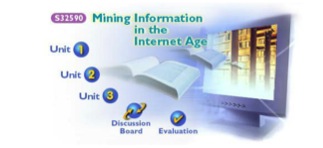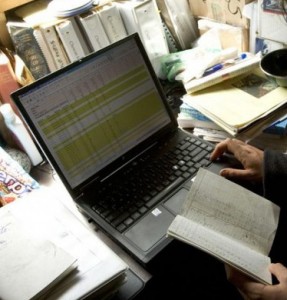Is online education good for learning? Nearly twenty five years ago, this was a relevant and pressing question for the education sector, universities in particular. Back then I was working at Monash University under the grand title of Associate Professor in Flexible Learning (flexible learning being the popular catchphrase at the time). I’d been working closely with my friend and colleague Len Webster at the time, and we’d been heavily involved in the development of online learning, going so far as designing and developing our own software (InterLearn) for the presentation of our post-graduate flexible learning course for academic staff. Continue reading
Tag Archives: online learning
A word on Stephen Downes
It has just occurred to me that in all my previous posts, I’ve seldom written about, nor mentioned, Stephen Downes, “the world’s most consistent and interesting blogger on online learning” (at least according to Tony Bates, anyway). Continue reading
Guest post*: Online learning issues we have yet to resolve
Online learning, or e-learning, is becoming an increasingly popular way to earn a degree.
The convenience of learning from one’s home computer, not to mention saving money on transportation, room and board, etc., is attracting an ever-larger number of students each year. Adult learners, who are often tied to familial and employment obligations, find this an excellent way to obtain a degree. Continue reading
MOOCs and OCW: come together, right now …
Last week Andrea Read from Online College Courses kindly sent me a link to a post on open courseware (OCW) that included a well-designed infographic on the scope and potential of online courses. Continue reading
Guest post*: How to stay focused when working online
Independent learning is a challenging task. You don’t have the physical presence of your peers, or your tutor present to answer questions and keep you focused. The motivation for study comes entirely from you, which can be tricky when your bed is just sooo cosy at 8am and you really don’t fancy dragging yourself to your desk to start the online tutorial. Even once you’ve made it to your computer, staying on task can be tricky, especially with the temptation of everything the internet holds. So, here are some handy tips to keep you focused when working independently online. Continue reading
My best online activity
As mentioned in my last post, I’ve always enjoyed designing activities for open and online learning. This post is about my favourite, an activity prepared more than 10 years ago for a course I wrote at the Open University of Hong Kong.  Continue reading
Continue reading
“Online lectures suck.” But that’s not the problem.
 “Online lectures suck”. Who said that, and why?
“Online lectures suck”. Who said that, and why?
The comment was made by a Stanford student concerning his experience with the Coursera course CS229a: Applied Machine Learning. Ben Rudolph is an on-campus, fee-paying ($50,000 p.a.) student who took the online class as part of his studies. It’s thus not surprising that he wouldn’t be particularly enthralled by having to watch a series of short videos rather than attend lectures and mix with his peers. Continue reading
Online learning sites you haven’t heard of … maybe
 Now here’s a catchy title: ’15 Free Learning Sites You Haven’t Heard of Yet’. Not only enticing, but also challenging – someone thinks they know something we don’t know. And we’re meant to be familiar online learning, so surely we’ve heard of most of them already?
Now here’s a catchy title: ’15 Free Learning Sites You Haven’t Heard of Yet’. Not only enticing, but also challenging – someone thinks they know something we don’t know. And we’re meant to be familiar online learning, so surely we’ve heard of most of them already?
That’s the way I felt anyway, as I satiated my curiosity by clicking the link provided by Sophia Coppolla from Onlinecollege.org in a recent email. How did I ‘score’? Two out of 15: Alison and University of the People, both good sites. Continue reading
Someone please have a word with Sebastian Thrun!
“I haven’t seen a single study showing that online learning is as good as other learning.” (Quote from ‘Universities reshaping education on the web‘ in The Age – original in The New York Times) This knuckleheaded claim was apparently made (apologies if the quote was wrong) by a leader in the current wave of online learning technologies, one Sebastian Thrun of Stanford University. That it was made at all is surprising, but to have been uttered by ‘a master of MOOCs’ is astonishing. Continue reading
Guest post*: The ongoing global advance of online learning
Since the days of Europe’s first universities, higher education has tended to be elitist and exclusive. While there were always exceptions provided to the remarkably bright and talented, by and large universities educated the children of the wealthy. Continue reading